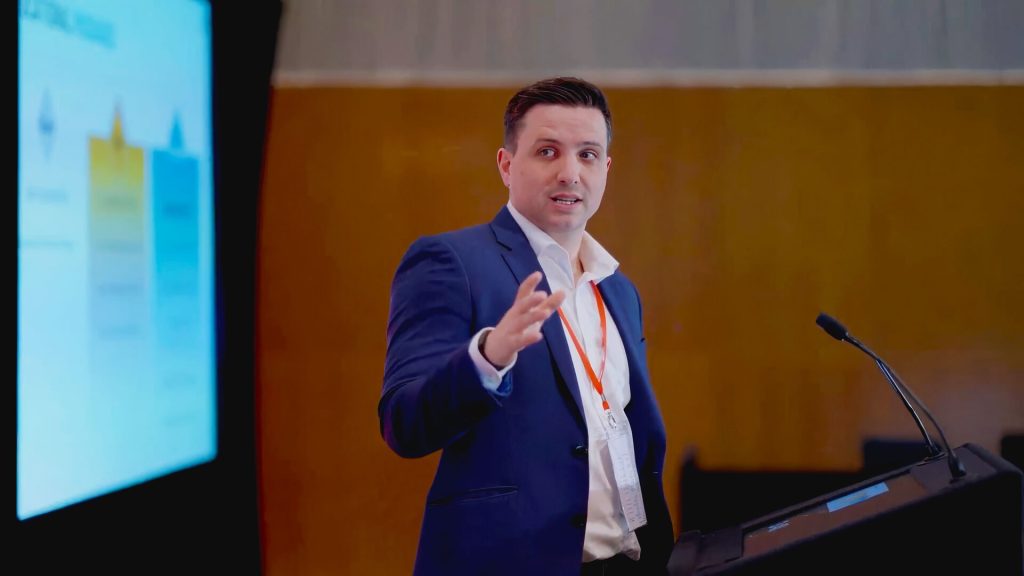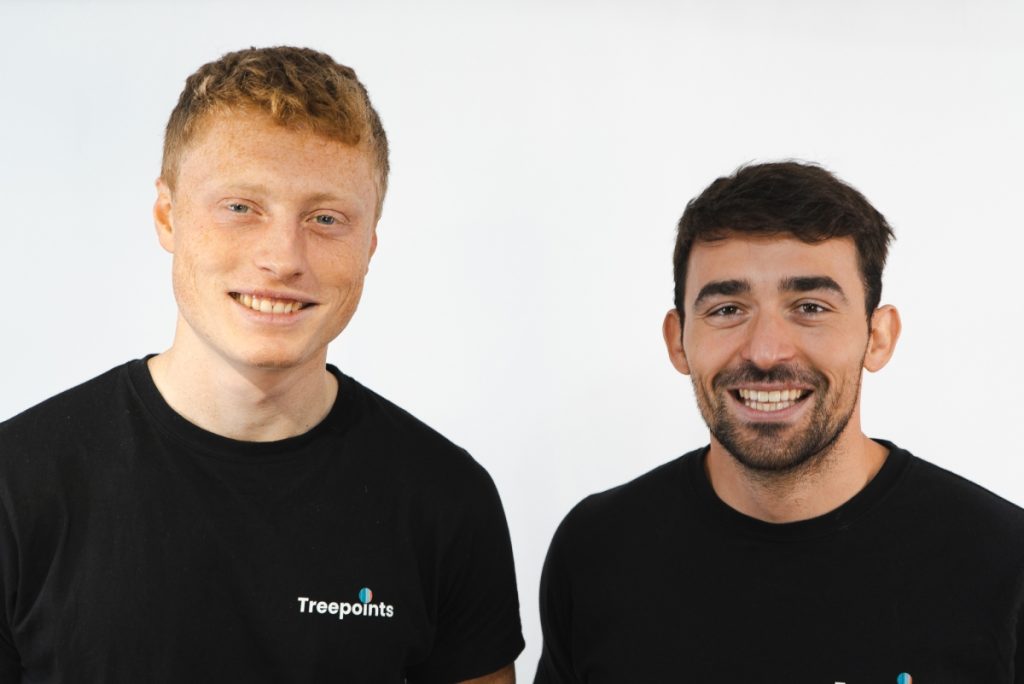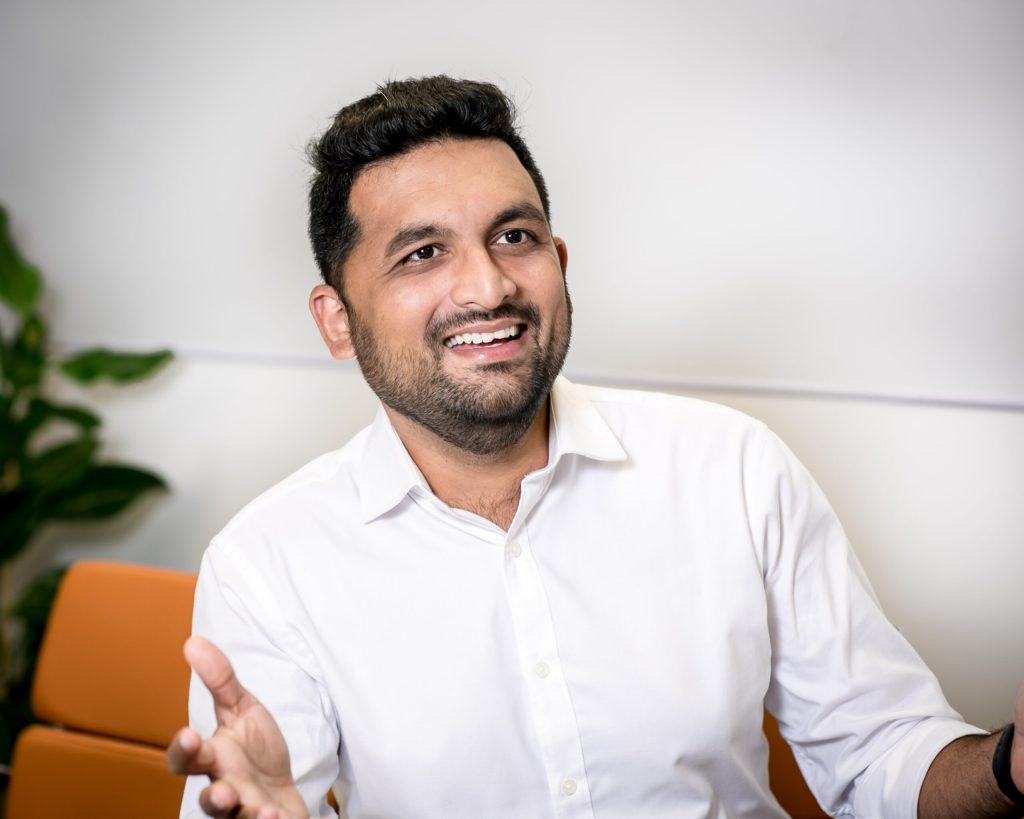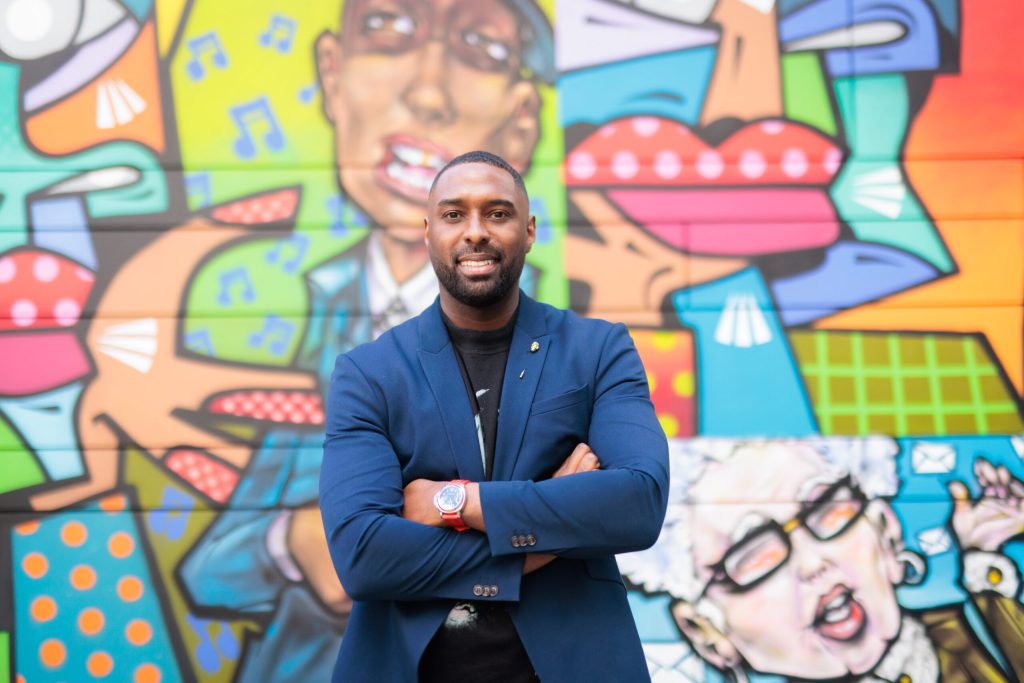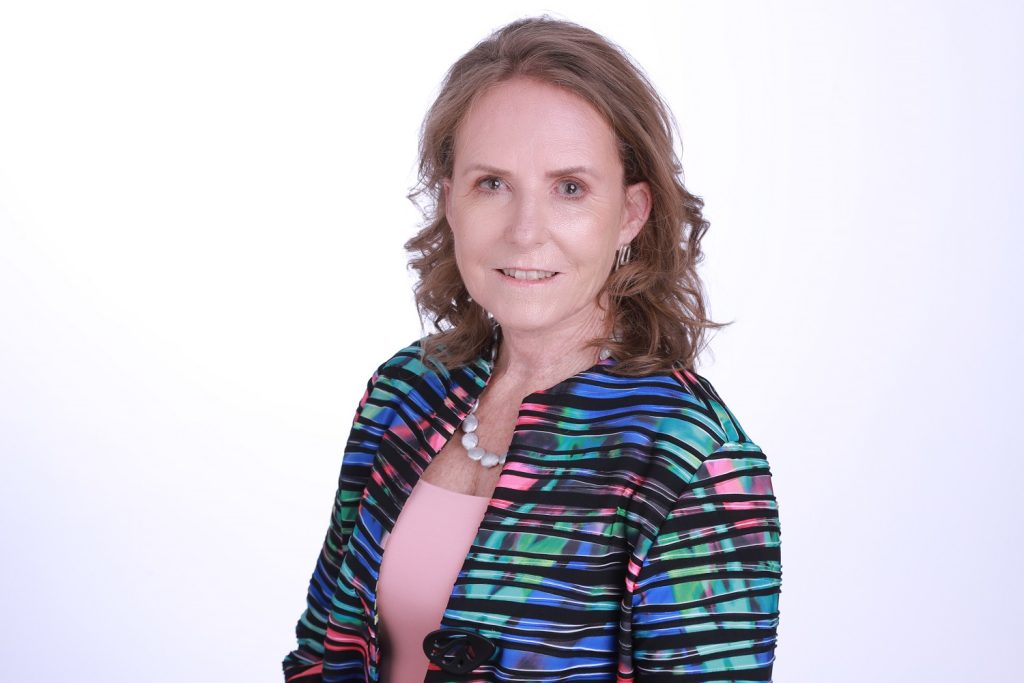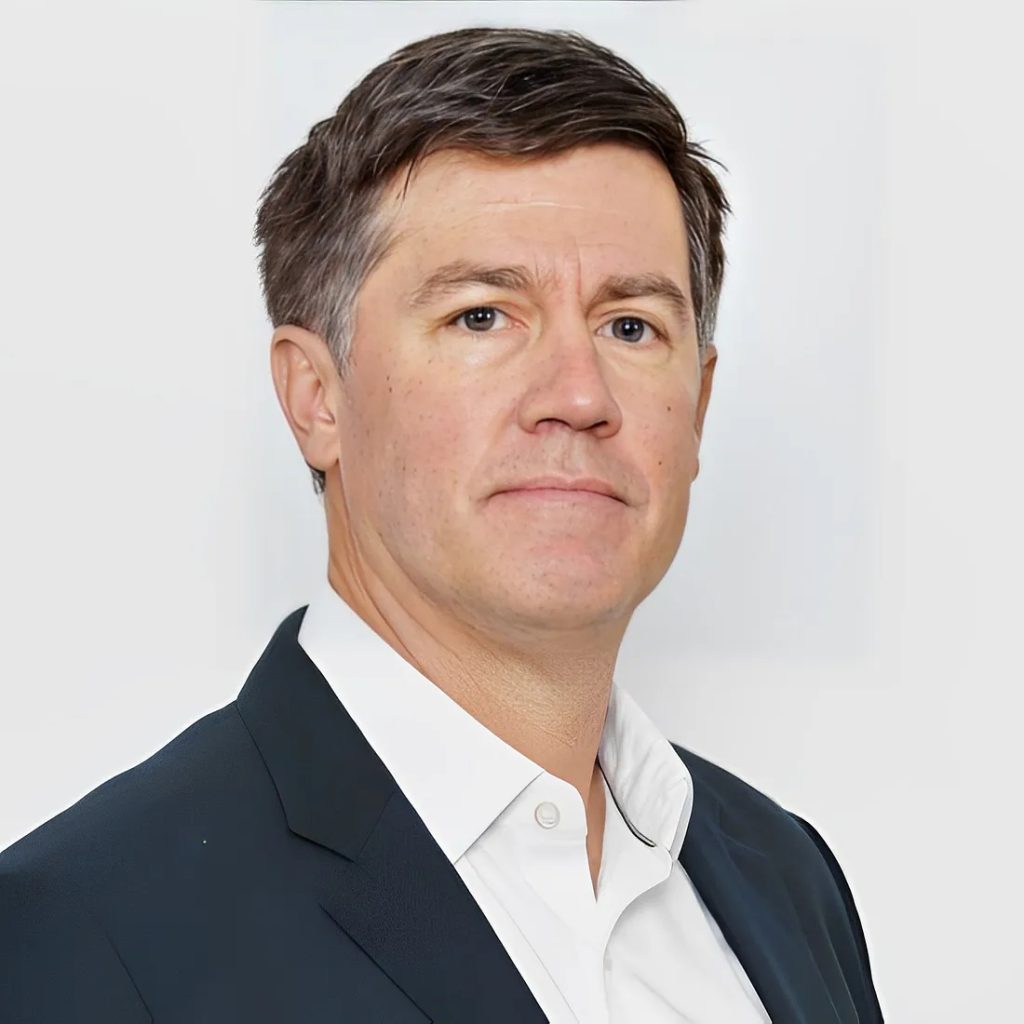
Fintech Visionary: Rewriting the Rules of Embedded Banking – Nick Root

“Be very careful with advice—most of it will steer you toward conventional thinking. Build your ability to reason from first principles, embrace resilience, and focus on creating long-term value. ” – Nick Root
Today, we feature Nick Root, the founder of Intergiro. We hear their story in their own words, their successes, their challenges, and their insights.
Hi Nick, it’s great to meet you. Shall we start by getting to know you? Can you please tell us a little about you and what you do?
I’m Nick Root, founder and CEO of Intergiro. My work focuses on transforming financial workflows through embedded finance and programmatic control by API. At Intergiro, we provide a full-stack payments API that enables internet platforms to integrate financial services directly into their products and platforms.
How did you start your business?
My journey into fintech began fairly conventionally. I started my career in financial services, working at two of London’s oldest institutions, both over 200 years old. Although I had a background in computer science, I found myself drawn to the finance sector (like many in London). It provided excellent foundational training but ultimately made me realize I craved the energy and innovation of younger, more dynamic businesses.
The turning point came during a BBQ, where I connected with Swedish investors launching a fintech company. Within a year, I had invested in and was running that business—now Intergiro.
While we initially offered basic business IBANs and cards, our vision was much larger: to create a programmable financial layer for internet platforms. Today, Intergiro enables platforms to embed payments, accounts, and cards through our APIs, giving them full programmatic control over financial workflows. This unlocks entirely new business models for our clients.
What does your business do and where is your company based?
Intergiro provides embedded financial solutions. We help businesses integrate payments, accounts, and cards into their operations through a single API. As the issuer, merchant of record, and acquirer, we enable closed-loop payment systems. This simplifies workflows and drives efficiency. Our headquarters are based in Stockholm, Sweden, but we operate across Europe.
Which industry sector does your company primarily operate in?
Fintech, specifically embedded payments and payment solutions for digital platforms.
What’s the story behind your success?
We always joke that “success” is just around the corner, yet it never seems to fully arrive. It doesn’t feel like “success,” and I doubt it ever will. That said, our journey at Intergiro has been defined by resilience, adaptability, and a relentless focus on solving real problems for our customers. A pivotal moment came when businesses asked if they could embed our banking tools—like accounts and cards—into their own platforms. This customer demand sparked our pivot to a B2B2C model, well before the term “embedded” was even coined. By focusing on solving real workflow challenges rather than just financial transactions, we carved out a unique position in the market.
In 2023, we celebrated a major milestone with our first cash-positive month, a rare achievement for a bootstrapped company. This was followed in 2024 by our first cash-positive quarter, further validating our contrarian approach and sustainable growth model. While there’s still work ahead, these milestones are a testament to our commitment to building something transformative while staying true to our vision.
How long has your company been operating, and what have been key milestones in its development?
Intergiro began as F.C.T.S (Financial Clearing and Transaction Services) in 2014, rebranding to Intergiro in 2017. I’ll highlight the key milestones below:
- 2018: Secured our Swedish EMI license.
- 2019: Became a principal member of Visa and Mastercard.
- 2020: Acquired Payfunc; a PSP and gateway platform.
- 2021: Launched our B2B2C platform.
- 2023: Achieved first cash-positive month.
- 2024: Reached first cash-positive quarter.
We know that there are ups and downs in business. What’s been your biggest lesson so far?
The biggest lesson has been understanding that resilience is everything in fintech. This industry is uniquely challenging—it’s highly regulated, capital-intensive, and filled with risks, from compliance to credit and fraud. Early on, we faced what I call the “wrath of the gods,” navigating complex regulations and working with major suppliers that often held our fate in their hands.
We learned that success comes from embracing those challenges rather than avoiding them. It’s about turning risk into leverage—managing it so effectively that it becomes a competitive advantage. Building a fintech company is like walking a tightrope between innovation and compliance, and our ability to stay balanced has been the key to our growth. Every setback taught us to adapt, improve, and keep moving forward.
If you were to go back in time, what piece of advice would you give to your younger self?
It’s a little bit of a cliché, but probably the biggest piece of advice would be don’t sweat the small stuff. It’s really easy to be an overthinker and worry about every nuance of every project, but you get more done more quickly when you keep your eyes on the bigger picture. Details do matter, but you don’t have to handle them all NOW. Also, it doesn’t matter if some things take time.
I have an inherent drive to get everywhere faster and everything done yesterday. The problem is that it can bring unnecessary stress. Sometimes the best results take time, and it’s OK to wait. As long as you don’t give up, it doesn’t matter if things take longer than you want them to take. Do I ever think I shouldn’t have become an entrepreneur? No! Never. I don’t actually think that I could have done anything else.
How has this lesson influenced your decision-making, especially in uncertain situations?
This lesson has shaped how we navigate uncertainty, teaching us to embrace long-term thinking while applying structured risk management. It has made us disciplined in re-evaluating strategies to align with shifting market conditions. Every decision is grounded in data and customer feedback, ensuring that we stay adaptable and focused on what matters most.
If you could give advice to your younger self, what would it be?
I would tell my younger self to think from first principles and stay true to the vision, even when it feels uncomfortable or misunderstood. I’d also emphasize the importance of resilience—often, it matters more than being right in the moment. Keep going, trust the process, and recognize that every challenge is an opportunity to learn and grow.
What do you see as the biggest opportunities and challenges for companies in your sector right now?
The biggest opportunities and challenges for fintech lie in the convergence of software, embedded finance, and efficiency-driven innovation. Here’s how I see it:
Opportunities:
-
Fintech as a Layer
Software is eating fintech, much like it has with every other industry. Fintech is becoming an integral layer within a broader tapestry of innovations like AI, spatial computing, the metaverse, and Web3. This shift will create value on an unprecedented scale, orders of magnitude greater than traditional fintech ever achieved.
-
Embedded everything
BaaS and embedded finance are redefining what financial services were always meant to be—a service, seamlessly integrated into other products. Companies without embedded offerings risk being left behind in this transformation.
-
Efficiency revolution
AI and software are supercharging efficiency, bringing us closer to a future where even small teams can achieve unicorn-level scale. In payments and embedded finance, the players that align with this trend—minimizing costs and cutting out middlemen like partner banks—will lead the way.
Challenges:
-
Regulatory scrutiny
Regulators are tightening oversight on BaaS and embedded finance models, especially concerning agency issues and risk management. Navigating these challenges while maintaining flexibility and innovation is no small task.
-
Race to efficiency
The pressure to operate at extremely low costs while delivering high value will push fintechs to reimagine their models, requiring significant investment in technology and infrastructure.
-
Staying relevant
As software continues to “eat fintech,” traditional players must evolve rapidly to avoid being displaced by more agile, embedded-first challengers. The sector’s future belongs to those who adapt to these shifts while remaining customer-focused.
We’re nearly at the end of our interview so it’s a great time to ask how does your business run. What three tools make your business run better?
-
Data visualization tools:
Essential for making fast and informed decisions. They allow us to track key metrics, identify trends, and respond to opportunities or challenges with agility.
-
Slack and Notion
As a remote-first company, keeping the team aligned and collaborative is critical. Slack is our real-time communication tool, while Notion helps us centralize documentation, manage projects, and maintain clarity across teams.
-
Miro
One of my favourite; is indispensable for brainstorming, strategy sessions, and visual collaboration.
What has been your greatest achievement or proudest moment?
Transitioning Intergiro from a lean, bootstrapped startup to a profitable fintech while redefining what’s possible in embedded finance has been a great achievement. But perhaps the most fulfilling part of the journey is seeing our customers use our tools to create entirely new business models. Watching them turn our platform into the foundation for their innovation and growth makes all the challenges worthwhile. It’s a reminder that success isn’t just about profitability—it’s about empowering others to succeed.
Now beyond achievements, how do you measure success in your business beyond traditional metrics?
Customer impact. When our clients use our tools to innovate, build new business models, or solve complex problems, we know we’ve succeeded. Our role is to stay in the background, providing the infrastructure they need to thrive through our APIs. Their success is the clearest reflection of ours.
What do you know now that you wished you had known before?
I wish I had understood earlier just how important it is to embrace uncertainty and adapt quickly. In fintech, challenges like regulatory hurdles or shifting market dynamics are constants, not exceptions. I’ve learned that resilience, combined with a focus on customer needs, often outweighs perfect planning.

What future life goals do you want to achieve and why?
My main goal is to continue building impactful financial products that empower businesses to innovate and grow.
To finish our inspire questions…”We believe that sharing inspiring words can inspire others.” What advice would you give to another founder or someone thinking about starting a business, and why?
Be very careful with advice—most of it will steer you toward conventional thinking. Build your ability to reason from first principles, embrace resilience, and focus on creating long-term value.
“Thank you it has been great learning more about your founder story and Intergiro”
To learn more about Intergiro please visit Intergiro
Find on social media @
Intergiro: Overview | LinkedIn
Disclaimer:
The views, thoughts, information, and opinions expressed in the text, videos, images belong solely to those of the individuals involved, and do not necessarily represent those of Founderat.com and its corporate owners, employees, organization, committee, or other group or individuals.


